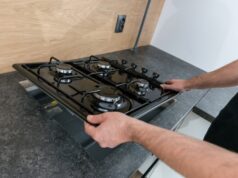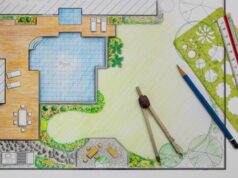
The wrong hot water system can end up costing you far more than it needs to over the long term. Check our handy table to decide which is right for you.
About two thirds of all hot water systems sold are replacements – that is, people looking for another when their current one dies. When this happens, people are without hot water and are usually in a desperate rush to arrange an equivalent replacement as quickly and as painlessly as possible. Often, however, giving a little thought to your choice can save you a lot of money in the long run on water and energy bills and considerably lower your family’s carbon footprint.
What type of system is right for your house? It would be nice if there was a one-size-fits-all answer to this question – or even an easy way to answer it – but the reality is a little more complicated. In most cases, there are a number of different options that may suit your household’s needs.
What you need to consider
The best approach to choosing a hot water system is to first identify your needs, and the things that may limit your choices. Below are some of the questions you will need to ask when deciding on what kind of system best suits your needs.

What fuel types are available?
Most importantly for many Australian households, this is a question of whether or not gas is available. If you don’t have a solar boosted hot water system, natural gas is easily the cheapest and most efficient type of fuel for your hot water system. Electric hot water systems are being phased out – and are expensive to operate and contribute significantly to greenhouse gas pollution of you don’t have a decent solar electricity setup.

How much water is needed?
The number of people living in your house and how much water is used at any given time will determine the capacity and demand you require. As a rule of thumb, smaller households of 1-3 people are well served by solar boosted systems, continuous flow gas systems, or heat pump electric hot water systems. Large households with access to gas will be better suited to a storage tank hot water heater.

How far from the hot water system will your taps be?
Your house’s design is all-important – not just because heat dissipates as it travels through the pipes, but also because if the taps are too far from your hot water system you’ll waste a lot of water waiting for it to get hot. If a hot water outlet is too far from your hot water unit you might consider various enhancements or a separate continuous flow system on the other side of the house.

How much space do you have?
Hot water systems take up space. For example, gas storage tank systems need to have a flue that exhausts outdoors, and tanks in general need somewhere for excess water to run off to, as well as a set amount of clearance on all sides. Likewise, if you’re planning on installing solar collectors, you need to consider whether or not you have the necessary north-facing roof space.

What is your initial budget?
Your budget mostly boils down to whether or not you will be able to install a solar boosted hot water system. These systems are more expensive to buy than straightforward gas or electric systems, but will usually pay for themselves over time, and allow you to claim large government rebates when you purchase and install them.
| Type of hot water system needed | 1-2 people | 3 people | 4 people | >5 people | ||||
|---|---|---|---|---|---|---|---|---|
| Gas | No gas | Gas | No gas | Gas | No gas | Gas | No gas | |
| Gas 5+ star tank storage | ||||||||
| Gas 5+ star continuous flow | ||||||||
| Heat pump (electric) | ||||||||
| Solar gas boosted | ||||||||
| Solar electric boosted | ||||||||
| Note: The suitability of solar hot water depends on how much sun is available in your area. | ||||||||





